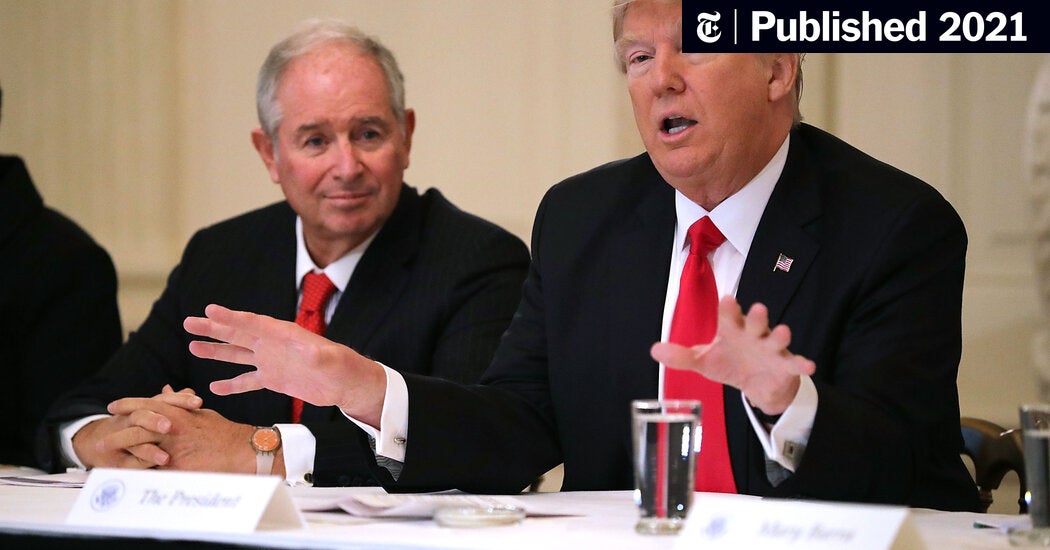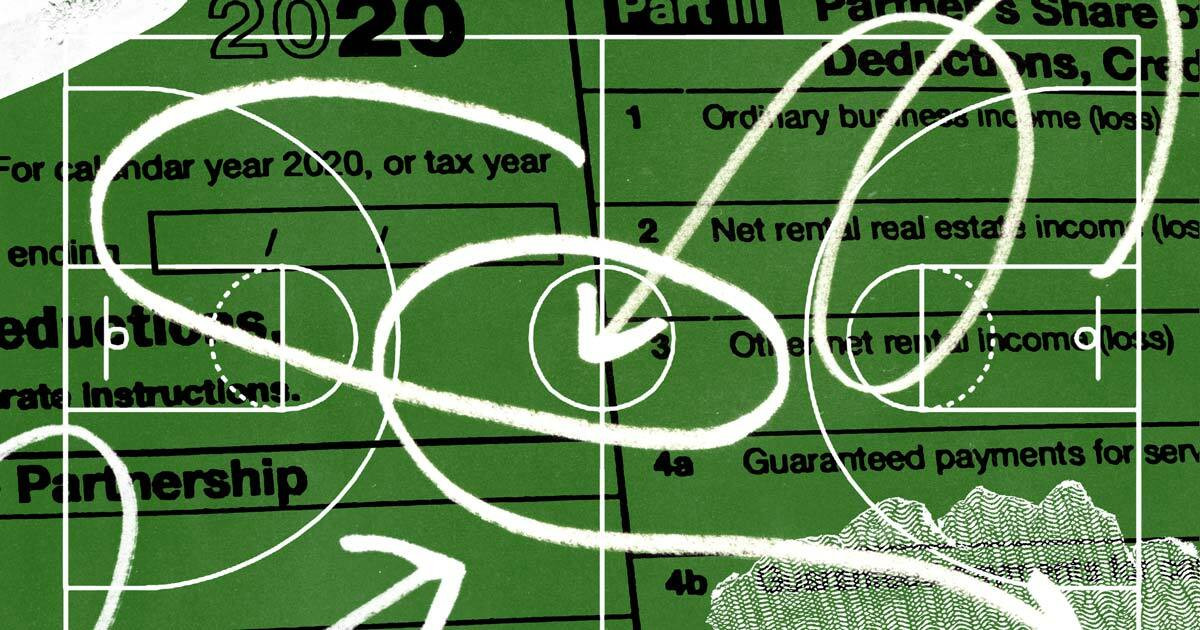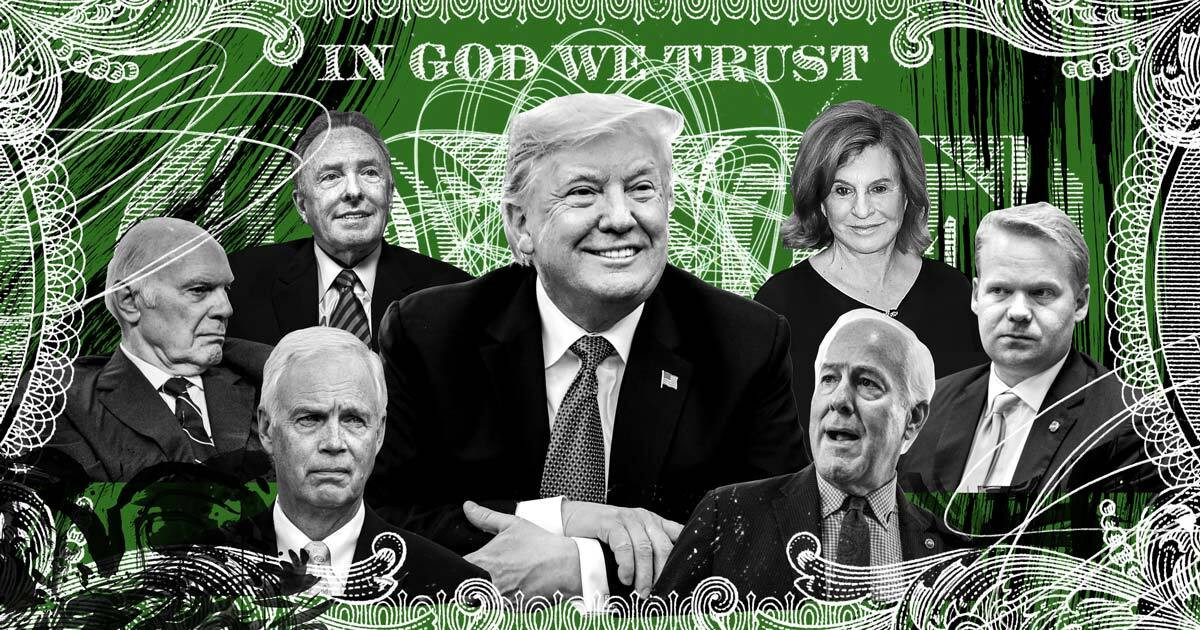G-7 agreed to a plan to replace Digital Services Taxes, instead targeting multinationals where they are actually doing business rather than where they are headquartered. It’s part of the G7 approved proposal for a 15% minimum tax rate.
Colleges
- American Athletic
- Atlantic Coast
- Big 12
- Big East
- Big Ten
- Colonial
- Conference USA
- Independents (FBS)
- Junior College
- Mountain West
- Northeast
- Pac-12
- Patriot League
- Pioneer League
- Southeastern
- Sun Belt
- Army
- Charlotte
- East Carolina
- Florida Atlantic
- Memphis
- Navy
- North Texas
- Rice
- South Florida
- Temple
- Tulane
- Tulsa
- UAB
- UTSA
- Boston College
- California
- Clemson
- Duke
- Florida State
- Georgia Tech
- Louisville
- Miami (FL)
- North Carolina
- North Carolina State
- Pittsburgh
- Southern Methodist
- Stanford
- Syracuse
- Virginia
- Virginia Tech
- Wake Forest
- Arizona
- Arizona State
- Baylor
- Brigham Young
- Cincinnati
- Colorado
- Houston
- Iowa State
- Kansas
- Kansas State
- Oklahoma State
- TCU
- Texas Tech
- UCF
- Utah
- West Virginia
- Illinois
- Indiana
- Iowa
- Maryland
- Michigan
- Michigan State
- Minnesota
- Nebraska
- Northwestern
- Ohio State
- Oregon
- Penn State
- Purdue
- Rutgers
- UCLA
- USC
- Washington
- Wisconsin
High Schools
- Illinois HS Sports
- Indiana HS Sports
- Iowa HS Sports
- Kansas HS Sports
- Michigan HS Sports
- Minnesota HS Sports
- Missouri HS Sports
- Nebraska HS Sports
- Oklahoma HS Sports
- Texas HS Hoops
- Texas HS Sports
- Wisconsin HS Sports
- Cincinnati HS Sports
- Delaware
- Maryland HS Sports
- New Jersey HS Hoops
- New Jersey HS Sports
- NYC HS Hoops
- Ohio HS Sports
- Pennsylvania HS Sports
- Virginia HS Sports
- West Virginia HS Sports
ADVERTISEMENT
You are using an out of date browser. It may not display this or other websites correctly.
You should upgrade or use an alternative browser.
You should upgrade or use an alternative browser.
Pro-Publica Tax Article on the 25 Richest Americans
- Thread starter astonmartin708
- Start date
I don’t think the difference between their GI and their TI are that astronomically large. Without seeing them, I couldn’t prove that though.
Although I think these returns would be hard to follow due to their complexity I would love to see them.
Yes, that was your point. It is not the only point that can be made on the subject. They gladly took the savings, which they had every right to do. But that (or nothing else) makes the subject off limits. I'm saying what I said.The point is who created and voted for these tax cuts. Are you saying Pelosi voted for them? No Democract in the House or Senate voted for the 2017 Trump tax bill. As for the fillibuster, it was passed under reconciliation; no filibuster allowed.
Last edited:
Okay, but I have no idea what your point is now.Yes, that was your point. It is not the only point that can be made on the subject. They gladly took the savings, which they had every right to do. But that (or nothing else) makes the subject off limits. I'm saying what I said.
The article (not me) was about POT members of Congress being the only members of Congress to vote for a bill that financially benefitted them far more than the rest of the country. Yes, the top 10% of country got about 90% of the benefits regardless of political affiliation, but only one party voted for it.My point is that you talked about it making money for rich Republicans but the Democrats also made money. The House Democrats may have talk it down but rich Democrats prospered under it.
The primary financial beneficiaries of the recent Covid bill passed Democrats via reconciliation was the unemployed and small businesses. Some Republicans who voted against the bill are taking credit for it in their home districts.
You don't usually post articles that you disagree with unless you are arguing against them. If you disagree with the article feel free to say so.The article (not me) was about POT members of Congress being the only members of Congress to vote for a bill that financially benefitted them far more than the rest of the country. Yes, the top 10% of country got about 90% of the benefits regardless of political affiliation, but only one party voted for it.
The primary financial beneficiaries of the recent Covid bill passed Democrats via reconciliation was the unemployed and small businesses. Some Republicans who voted against the bill are taking credit for it in their home districts.
There 535 members in the US House and US Senate. I don't try to keep track of what each of them says in their home districts. So, I will take your statement that "Some" are taking false credit for the bill's passage as correct.
Who will be the primary beneficiaries of the SALT deduction cap repeal that dems are currently pushing? Just wondering since WATU seems to believe dems are too noble to vote for the financial interests of the wealthy

Private Inequity: How a Powerful Industry Conquered the Tax System (Published 2021)
The I.R.S. almost never audits private equity firms, even as whistle-blowers have filed claims alleging illegal tax avoidance.
PP published a follow up article on tax evasion techniques of the rich and famous. This one involves Peter Thiel and Roth IRA’s. Basically they have access and influence with tech startups that 99% of Americans don’t, they then invest for fractions of penny a share using a Roth IRA. When the startup IPO’s at $50 or whatever they’ve made their Roth worth millions of dollars which they can then further use to invest untaxed. Theil’s is worth 5 Billion. Basically using the Roth for something it was never meant for.

 www.propublica.org
www.propublica.org

Lord of the Roths: How Tech Mogul Peter Thiel Turned a Retirement Account for the Middle Class Into a $5 Billion Tax-Free Piggy Bank
Roth IRAs were intended to help average working Americans save, but IRS records show Thiel and other ultrawealthy investors have used them to amass vast untaxed fortunes.
I agree.That’s on the IRS and Congress for failing to close that loophole. They obviously know about it. If you or I were pulling those shenanigan we would have the Fed’s at our door.
Tax Peter Thiel and his $5 billion IRA.

 slate.com
slate.com

How to Make Peter Thiel Pay Taxes on His Shady $5 Billion Roth IRA
It's probably legal, but it shouldn't be.
Late to the party and posting slate lol.Tax Peter Thiel and his $5 billion IRA.

How to Make Peter Thiel Pay Taxes on His Shady $5 Billion Roth IRA
It's probably legal, but it shouldn't be.slate.com
One quote out of 1363 that says something of interest.dont tax income. its too easy to hide income. tax activity and consumption..
What do you do about those that continually save, invest, etc. They aren't spending all that they earn and are making money off their use of the money.
One quote out of 1363 that says something of interest.
What do you do about those that continually save, invest, etc. They aren't spending all that they earn and are making money off their use of the money.
Investing generally results in taxable events. People who hoard cash obviously avoid such events but they are the exception and not the rule. Suppose we could make the argument that the cash deposited in our financial institutes by the hoarders allows said institutions to make loans which result in jobs and tax revenue if we take it out another level. As inflation increases, I assume those cash hoarders will become less and less.
Many of the most prominent earners are hoarders though. They literally have more money than they know what to do with. Sometimes they donate a portion of the wealth to charity, but it goes to a cause of their choosing which may or may not be a legitimate societal need.Investing generally results in taxable events. People who hoard cash obviously avoid such events but they are the exception and not the rule. Suppose we could make the argument that the cash deposited in our financial institutes by the hoarders allows said institutions to make loans which result in jobs and tax revenue if we take it out another level. As inflation increases, I assume those cash hoarders will become less and less.
Note Wyden’s unsuccessful efforts to fix the loop hole years ago.Late to the party and posting slate.
I realize, I was just commenting on Rivalcane's seeming suggestion of what would be a higher sales tax, and elimination of income tax.Investing generally results in taxable events. People who hoard cash obviously avoid such events but they are the exception and not the rule. Suppose we could make the argument that the cash deposited in our financial institutes by the hoarders allows said institutions to make loans which result in jobs and tax revenue if we take it out another level. As inflation increases, I assume those cash hoarders will become less and less.
Many of the most prominent earners are hoarders though. They literally have more money than they know what to do with. Sometimes they donate a portion of the wealth to charity, but it goes to a cause of their choosing which may or may not be a legitimate societal need.
Haven’t done much research on this topic. My guess would be that corporations tend to hoard cash at a much higher rate then individuals for numerous reasons. Rich individuals hoarding cash just doesn’t make much sense to me although I’m sure many do just that. Corporations are another story.
I’m starting to think more about taxes on the growth of wealth in general. Should stocks be taxed like real estate is, based on its yearly valuation...
I’m starting to think more about taxes on the growth of wealth in general. Should stocks be taxed like real estate is, based on its yearly valuation...
Would be quite complex imo. Gains one year with losses the next. Mutual funds hold hundreds of stocks. Accountants would certainly be in favor of this. I assume the IRS would be paying large refunds to taxpayers in years where the market tanks.
As for real estate, it’s taxed at the local level based on a stated valuation. Good luck getting your taxing authority to decrease the assessed value in times of devaluation. Real estate (non-homestead) is also tax when sold as you know. Not sure we could follow the real estate model but possibly a hybrid.
I was thinking of the same things you are in terms of difficulties, but it might be the most wide ranging and fair system of taxation. It’s kind of like a capital gains tax, but it would be assessed throughout the item’s life. Losses would be difficult to assess. Maybe asses it less often than yearly? (Every 3-5 years) to allow for losses to balance out... I’m not sure what way would work best, but I’m really sure that the way we have isn’t working.Would be quite complex imo. Gains one year with losses the next. Mutual funds hold hundreds of stocks. Accountants would certainly be in favor of this. I assume the IRS would be paying large refunds to taxpayers in years where the market tanks.
As for real estate, it’s taxed at the local level based on a stated valuation. Good luck getting your taxing authority to decrease the assessed value in times of devaluation. Real estate (non-homestead) is also tax when sold as you know. Not sure we could follow the real estate model but possibly a hybrid.
I’m starting to think more about taxes on the growth of wealth in general. Should stocks be taxed like real estate is, based on its yearly valuation...
No
if you win a vacation in a contest, you pay taxes on it.I realize, I was just commenting on Rivalcane's seeming suggestion of what would be a higher sales tax, and elimination of income tax.
but if i my company gives you a vacation, not only do you not pay taxes on it, but it could a tax deduction for my company.
So? That's really got nothing to do with what I was talking bout.if you win a vacation in a contest, you pay taxes on it.
but if i my company gives you a vacation, not only do you not pay taxes on it, but it could a tax deduction for my company.
Last edited:
I assume the IRS would be paying large refunds to taxpayers in years where the market tanks.
Eight Takeaways From ProPublica’s Investigation of How Sports Owners Use Their Teams to Avoid Taxes

 www.propublica.org
www.propublica.org

Eight Takeaways From ProPublica’s Investigation of How Sports Owners Use Their Teams to Avoid Taxes
How do billionaire team owners end up paying lower tax rates not only than their millionaire players, but even the person serving beer in the stadium? Let’s go to the highlights.
The Secret IRS Files: Trove of Never-Before-Seen Records Reveal How the Wealthiest Avoid Income Tax — ProPublica

 www.propublica.org
www.propublica.org

The Secret IRS Files: Trove of Never-Before-Seen Records Reveal How the Wealthiest Avoid Income Tax
ProPublica has obtained a vast cache of IRS information showing how billionaires like Jeff Bezos, Elon Musk and Warren Buffett pay little in income tax compared to their massive wealth — sometimes, even nothing.
And....GOP refuses to fund the laws we already have?
Here's what we borrowed money from China for:

 www.propublica.org
www.propublica.org

Secret IRS Files Reveal How Much the Ultrawealthy Gained by Shaping Trump’s “Big, Beautiful Tax Cut”
Billionaire business owners deployed lobbyists to make sure Trump’s 2017 tax bill was tailored to their benefit. Confidential IRS records show the windfall that followed.
Article states the rich saved roughly $25B. We will borrow over $3T this year. Doing the math that’s well less than 1%. While I’m as tired as anyone of companies like Amazon paying a lower tax rate than myself, the $25B is merely a drop in the bucket of what we’re borrowing trillions from China.
We need to reform the tax structure to increase the share of corporate taxes, and decrease the number of loopholes available to the ultra wealthy. I think that $25B number you quoted was money saved due to the Trump tax cuts, not an overall savings (or evasion) by the wealthy.Article states the rich saved roughly $25B. We will borrow over $3T this year. Doing the math that’s well less than 1%. While I’m as tired as anyone of companies like Amazon paying a lower tax rate than myself, the $25B is merely a drop in the bucket of what we’re borrowing trillions from China.
We also need to decrease the amount we spend on healthcare. It’s an imperative. It’s the greatest share of our budget that we’re paying but other countries aren’t.
We also will have to look at reductions in defense spending.
Correct. Total savings per the article was a tad under $50B Sounds like a lot but less than 1% of the $6T we spent last year or this year for that matter. I would suggest the current code is the real issue here and has been for years.We need to reform the tax structure to increase the share of corporate taxes, and decrease the number of loopholes available to the ultra wealthy. I think that $25B number you quoted was money saved due to the Trump tax cuts, not an overall savings (or evasion) by the wealthy.
We also need to decrease the amount we spend on healthcare. It’s an imperative. It’s the greatest share of our budget that we’re paying but other countries aren’t.
We also will have to look at reductions in defense spending.
Agree on all other points.
The US health system is remarkably inefficient and costs about 2x what other industrialized countries spend to cover 100% of the population. The Senate finance committee blocked any consideration of single payer under Obama, so we settled for Obamacare as a step in that direction, but it's been under attack since. We spend more on our military than the next 6 or 10 nations combined, which diminishes money for productive uses. Add on that the cost of pointless, ill advised wars, and it's its hard to see how we could avoid deficit spending and a huge national debt, especially if the response to deficits is to cut taxes.We need to reform the tax structure to increase the share of corporate taxes, and decrease the number of loopholes available to the ultra wealthy. I think that $25B number you quoted was money saved due to the Trump tax cuts, not an overall savings (or evasion) by the wealthy.
We also need to decrease the amount we spend on healthcare. It’s an imperative. It’s the greatest share of our budget that we’re paying but other countries aren’t.
We also will have to look at reductions in defense spending.
More Trump gifts to the non-tax paying wealthy

 www.propublica.org
www.propublica.org

How the Trump Tax Law Created a Loophole That Lets Top Executives Net Millions by Slashing Their Own Salaries
The 2017 tax cuts made it more attractive for certain company owners to be paid in profits instead of wages. Some cut their own wages, expanding a loophole that was already costing the U.S. billions.
i thought congress ( ie biden, pelosi, schumer, harris, hrc . . . ) wrote the tax laws, not the presidentMore Trump gifts to the non-tax paying wealthy

How the Trump Tax Law Created a Loophole That Lets Top Executives Net Millions by Slashing Their Own Salaries
The 2017 tax cuts made it more attractive for certain company owners to be paid in profits instead of wages. Some cut their own wages, expanding a loophole that was already costing the U.S. billions.www.propublica.org
Similar threads
- Replies
- 0
- Views
- 133
ADVERTISEMENT
ADVERTISEMENT